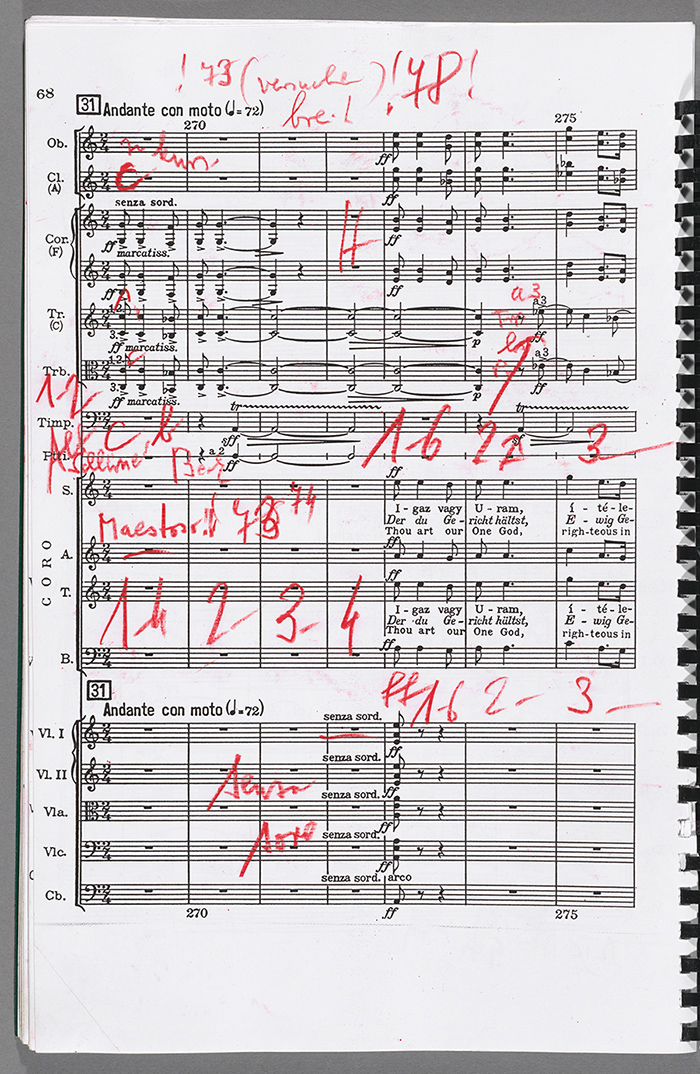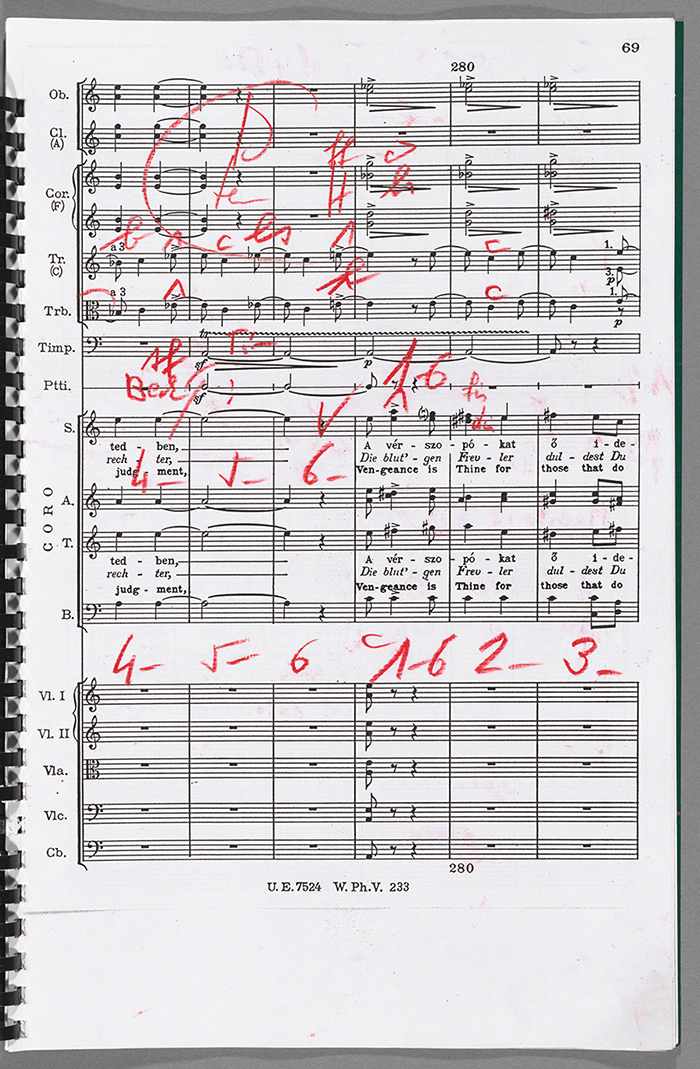Zoltan Kodály was, like Béla Bartók, one of Solti’s teachers at the Liszt Academy of Music in the mid-1920s. He composed the Psalmus hungaricus, his first significant work for voices and orchestra, in 1923 on the occasion of a concert to celebrate the fiftieth anniversary of the unification of Buda, Óbuda and Pest into the modern city of Budapest. Kodály took as his text a Hungarian versification of Psalm 55 by the sixteenth century Protestant priest Mihály Kecskeméti; his impassioned setting of this plea for deliverance had a clear relevance to the contemporary political landscape. Solti returned to Hungary in the summer of 1997 to record the work (along with Bartók’s Cantata profana and Léo Weiner’s Serenade for Small Orchestra) with the Budapest Festival Orchestra, his first recording in his native Hungary with a Hungarian orchestra. It proved to be his very last studio recording, a moving return to his musical roots and a tribute both to the city where his musical education began and to his mentors, Professors Bártók, Weiner, and Kodály.



